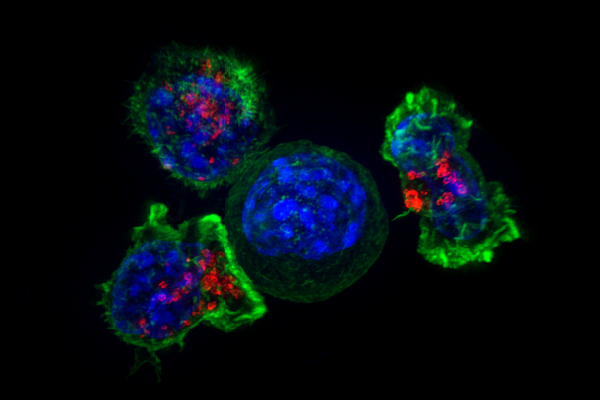New research shows how metabolism and epigenetics play a role in cancer development

A study published in Briefings in Functional Genomics investigated how epigenetics can modulate human's genetic program—it can emphasize or silence genes. The new research shows that if epigenetics is disrupted, it might switch on oncogenes (genes that in certain circumstances transform cells into tumor cells) or shut down tumor suppressors. Both events will transform cells into tumor cells and cause cancer.
Pioneering experiments half a century ago showed that chemical modification affecting the packaging of our DNA can switch genes on or off. This introduced the idea of an epigenetic code, a language that does not change the basic code of our DNA but chemically labels active or inactive genetic information.
Epigenetics refers to changes caused by modification of gene expression, rather than alteration of the genetic code itself. It focuses on factors that write and erase such labels and processes that regulate how and when certain genes are turned on and off. In contrast, epigenomics refers to analysis of global epigenetic changes across many genes.
This paper indicates that complementary forces of writers and erasers keep each other in check. If one force overtakes, the system gets out of equilibrium. For the cells this means either unlimited growth, cancer, or death. Researchers argue that once we have a better understanding of epigenetic regulation, scientists can design drugs that counter-regulate these factors.
Recent multiomics data has identified an epigenetic writer, the methyltransferase EZH2, to be hyperactivated in many cancers including melanomas and lymphomas with poor prognosis owing to immune evasion and repression of tumor suppressors., The paper also showed that an epigenetic eraser, a member of the jumonji histone lysine demethylase family, KDM3A, takes on an oncogenic role by activating a network of tumor promoting genes.
A challenge is to identify cancer-specific vulnerabilities in biological pathways that are frequently disrupted under the control of epigenetics. In addition, epigenomic changes also contribute to the ability of tumor cells to escape detection by the human immune system, a concept that cancer immunotherapy tries to leverage.
The paper identified several layers of molecular communication where epigenetic regulators are involved in tumor metabolism and regulatory activity.
Taken together, precision medicine in combination with cancer systems biology may have the ability to reveal genome- and epigenome-wide alterations and identify molecular pathways suitable for drug targeting:
- Epigenomic master regulators can cause cancer in two ways: too much epigenetic activation can trigger oncogenes; too much epigenetic safeguarding can block tumor suppressor genes. Eventually, both mechanisms promote and progress cancer.
- Epigenomic changes and metabolites, human cellular chemistry, are tightly linked and rely on each other. Metabolites initiate, target, or maintain epigenetics, and vice versa. In addition, there is a strong cooperation of epigenetic factors with the transcriptional complex. Cooperation with metabolites can target, amplify, or mute these coded responses.
According to the paper's author, Fabian V. Filipp, "There is an intriguing crosstalk between metabolism and epigenetics. Although cancer and stem cells can be challenged by chemical inhibition, mechanistic details of how chromatin and metabolites interact are yet to be defined. With both fields maturing, further synergy between epigenetic and metabolomics may deliver new therapeutic agents as well as fundamental insights into how cellular chemistry regulates gene expression."
"This can become a paradigm for precision targeting in cancer," Filipp said, "where patients with mistuned epigenetics can benefit and epigenetic inhibition can overcome existing therapy resistance in cancer."
More information: , OUP accepted manuscript, Briefings in Functional Genomics (2017). DOI: 10.1093/bfgp/elx001

















